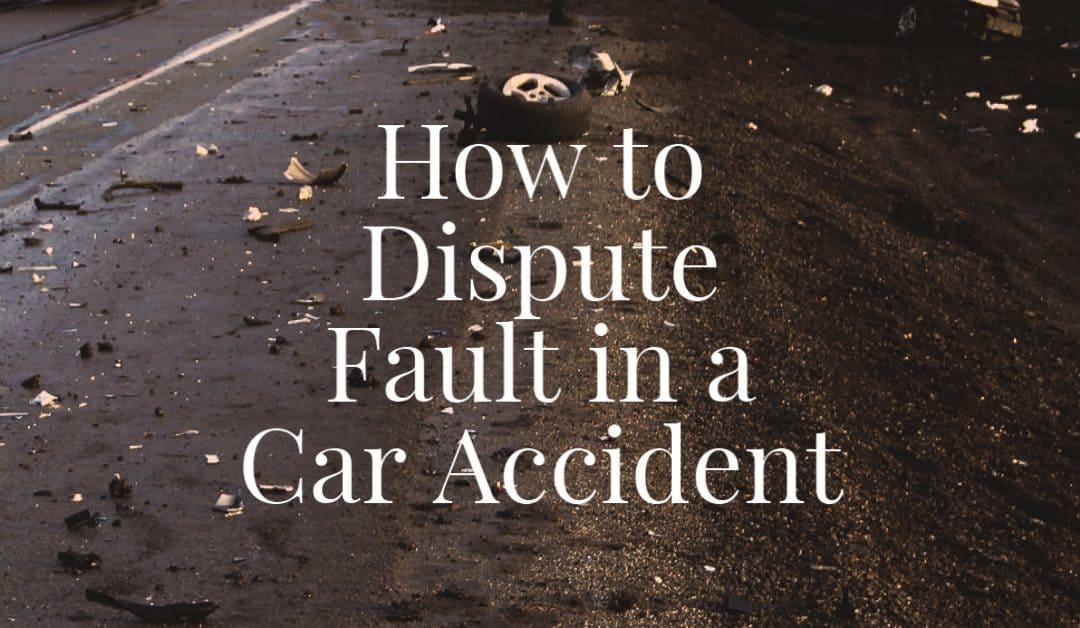If you’re in a car accident and the bills start piling up, you might feel overwhelmed by the trauma of it all. You can feel even worse if you are blamed as “at fault.” No matter what happened to cause the accident, you have a right to tell your side of the story. Learn how to dispute who is at fault in a car accident.
Dispute Car Accident Fault
North Carolina is an “at fault” state which means that your percentage of fault matters. Your percentage of fault determines your compensation for damages and injury. North Carolina has a pure contributory negligence rule. If you are found 1% at fault for an accident, you cannot receive compensation from the other driver’s insurance company.
What Does “No-Fault” Mean for Me?
Let’s say you stop at a 4-way stop sign. You admit to the police that you did not look both ways. You knew that no one else was stopped at the other stop signs. And then a truck doing 50mph blew through their stop sign and hit you.
In this case, you could be found partially negligent for not really looking both ways. You assumed driving was safe since you saw no one else at the stop signs. You did not do your due diligence and properly look for cars before going into the intersection.
If you are found 10% at fault for the accident by a jury, you receive 0% compensation from the other driver’s insurance company. Instead, you must rely on your own insurance to pay out, thereby effectively increasing your yearly rates.
Conflicting Reports of Your Car Accident
When you have an accident, police reports give a version of what happened that may not be the truth. When your insurance company gets the police report, they can sometimes deny your claim wrongly based on the evidence they received.
If you receive a letter denying your insurance claim, your case is not over. You can dispute the denial of coverage. To dispute fault in a car accident, call your claims representative. Let them know that you disagree with their fault assessment. Send the representative handling your case all the evidence you have. Send pictures of vehicles or the accident scene, the police report, and any witness statements. Write a letter explaining in detail your evidence. (1)
Claims Reps
Insurance adjusters and claims representatives are not on your side. You do, however, have to work with them to get your claim paid. Their goal is to save the insurance company money. They are not working to hand payment out to you.
Claims representatives can also use anything you say against you in a court of law, so it’s best not to talk about what happened without first talking with an attorney about the possible issues. An experienced traffic attorney will immediately know what the sticking points will be for your particular accident. An attorney can advise how to discuss your case with the claims adjuster without accidentally admitting fault in some way.
Unless you know how the system works, it is easy to lose the insurance money that you deserve. Instead, work with an attorney and get the money you need for car repairs or medical visits.
Defenses to Contributory Negligence
Just because you receive a denied claim does not mean that you are actually at fault. It is possible to defend yourself in court and use a legal defense to overturn the original decision.
One possibility is to prove that the other driver acted with reckless disregard for others’ well-being. If you can prove they were negligent in some way, the accident could be 100% their fault. There are other ways attorneys can help you defend your position of no-fault so that your injuries and damages are paid for.
Unless you can prove that you are 0% at fault, you get nothing from the other driver’s insurance company.
Ask Your Attorney
As experienced traffic attorneys, our team at Cape Fear Law can walk through the details of an accident with you. We help you make statements that are true and careful. Blindly telling your story without an attorney can cause you to inadvertently say something that implicates you as partially responsible for the accident.
We come through for you by fighting for your rights in the early stages of witness testimony gathering, working with claims adjusters and body shops, and later in court if we need to fight for your right to compensation for your injuries, pain, and damage.
Contact us today and get started finding justice for your losses.

